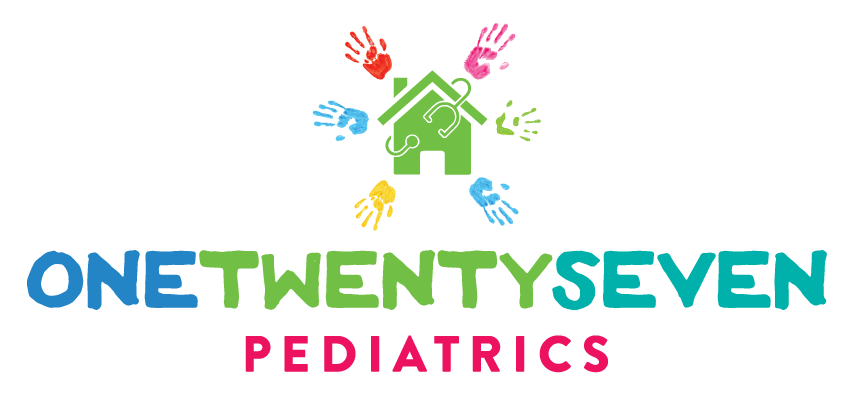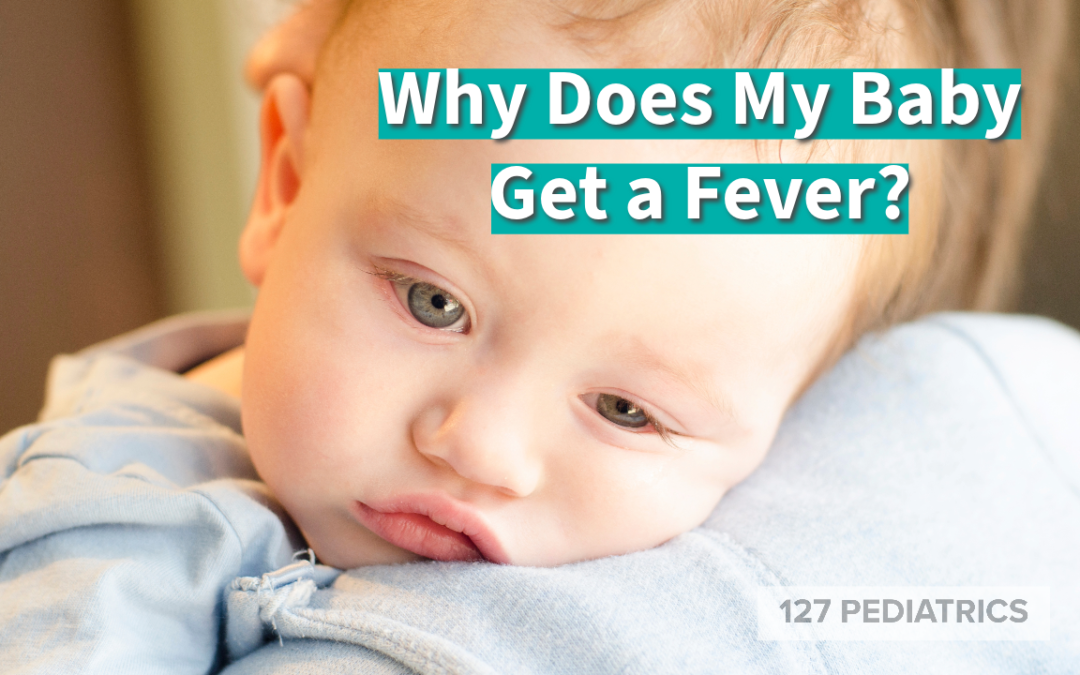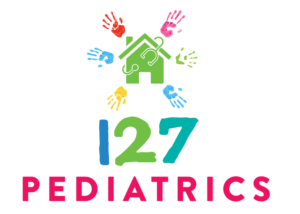As a pediatrician, I frequently encounter questions from parents asking “Why does my baby get a fever?” As a parent, I understand. Fevers are indeed a common occurrence in babies, often causing worry and anxiety for parents.
It’s tough to see them so uncomfortable when the fever takes hold.
However, it’s essential to understand that fevers are not always a cause for alarm. They often serve as a sign that the body’s immune system is working hard to fight off an infection.
I aim to provide parents with a comprehensive understanding of fevers in babies. We’ll explore the causes, symptoms, and treatment options, empowering you to make informed decisions about your baby’s health.
What is a Fever and Why Do Babies Get Them?
A fever is a temporary increase in body temperature above the normal range. In babies, the normal body temperature range is between 97°F (36.1°C) and 99.5°F (37.5°C). A fever occurs when the body’s “thermostat,” located in the hypothalamus of the brain, raises the body’s temperature to help fight off infection.
Fevers are a common response to infections, particularly viral infections. When a virus or bacteria enters the body, the immune system kicks into action, producing white blood cells to combat the invaders. This process generates heat, which raises the body temperature.
Common Causes of Fever in Babies
While fevers are often associated with infections, they can also be triggered by non-infectious causes. Here are some of the most common causes of fever in babies:
- Viral infections: These are the most common cause of fever in babies, accounting for up to 90% of cases. Common viral infections include the common cold, influenza, and respiratory syncytial virus (RSV).
- Bacterial infections: Bacterial infections can also cause fevers in babies, but they are less common than viral infections. Examples of bacterial infections that can cause fever include ear infections in babies, urinary tract infections, and pneumonia.
- Teething: Teething does not cause a true fever, but may elevate the body temperature mildly.
- Immunizations: Vaccinations are an important part of protecting babies from serious illnesses. However, they can sometimes cause a mild fever as the body mounts an immune response from the vaccine.
- Dehydration: When babies don’t get enough fluids, they can become dehydrated, which can lead to a fever.
- Excessive bundling: Overdressing a baby can trap heat and cause your baby to seem like they have a fever. If your baby is hot and registers an elevated temperature on the thermometer, try un-bundling them and retake their temperature again in 30 minutes.
Symptoms of Fever in Babies
The most common symptom of a fever in babies is a warm forehead. However, other signs may accompany a fever, including:
- Flushed cheeks
- Irritability
- Fussiness
- Reduced appetite
- Lethargy
- Chills
- Sweating
- A fast heartbeat
When to Seek Medical Attention
While most fevers in babies are not a cause for alarm, there are some situations when it’s important to seek medical attention promptly. Here are some signs that warrant a call to your pediatrician:
- A fever of 100.4°F (38°C) or higher in a baby under 3 months old
- A fever that lasts for more than 72 hours
- A fever accompanied by severe symptoms, such as difficulty breathing, drowsiness, or a stiff neck
- A fever that occurs after a head injury
Treating Fever in Babies
The goal of treating a fever in a baby is to make the baby comfortable, not necessarily to bring the temperature down immediately. Here are some home care measures that can help relieve fever discomfort in babies:
- Dress the baby lightly: Avoid overdressing the baby, as this can trap heat and make the fever worse. Dress the baby in light, breathable clothing.
- Offer plenty of fluids: Make sure the baby is getting enough fluids to prevent dehydration. Offer breast milk, formula, or water frequently.
- Use a cool washcloth: Apply a cool washcloth to the baby’s forehead, neck, and armpits.
- Consider over-the-counter medications: If the baby is uncomfortable, you can give over-the-counter medications such as acetaminophen or ibuprofen as directed by your pediatrician.
Preventing Fevers in Babies
While it’s not possible to completely prevent fevers in babies, there are some strategies you can take to reduce the risk of your baby getting sick:
- Encourage handwashing: Handwashing is one of the most effective ways to prevent the spread of germs. Encourage everyone who comes into contact with your baby to wash their hands thoroughly with soap and water, especially after being outside or using the bathroom.
- Avoid sick contacts: When your baby is around sick people, it’s important to take extra precautions to protect them. Wash your hands frequently, and avoid sharing toys, utensils, or cups with sick children.
- Maintain a clean environment: Keep your baby’s environment clean and clutter-free to reduce the buildup of germs. Wash your baby’s toys and bedding regularly, and regularly clean and disinfect surfaces that your baby comes into contact with.
- Breastfeed, if possible: Breast milk provides babies with antibodies that can help protect them from infections. If you can breastfeed your baby, do so exclusively for the first six months of life.
- Get vaccinated: Vaccinating your baby according to the recommended schedule is the best way to protect them from serious illnesses that can cause fevers.
127 Pediatrics is Here to Help With Your Baby’s Fever
Fevers are a common occurrence in babies, and most of the time, there is no need to worry. However, it’s important to be aware of the signs when to seek medical attention.
By following the tips in this blog post, you can help reduce the risk of your baby getting sick and make sure they are comfortable and well-cared for when they do have a fever.
At 127 Pediatrics, an at-home pediatrician service based in Colleyville, TX, we understand the challenges that come with being a new parent, especially when it comes to a baby’s needs.
We are here to help you and your family with your pediatric care needs. Dr. Wadley is just one text away for the members of her pediatric practice. Schedule a meet and greet today to see if 127 Pediatrics is a good fit for your family.
© 127 Pediatrics; December 2023
This article is for informational purposes only and should not be construed as medical advice.

Dr. Andrea Wadley is the owner, pediatrician, and breastfeeding medicine specialist for 127 Pediatrics. She has an established house-calls-only concierge pediatric practice in Colleyville, TX. She is also the owner and operator of the 127 Pediatrics Online Breastfeeding Medicine and Education Center.


